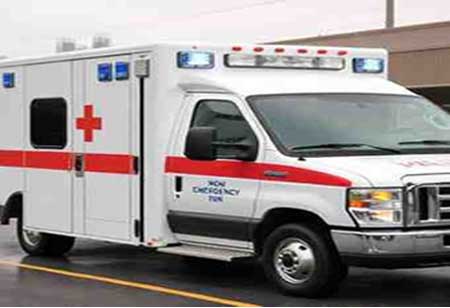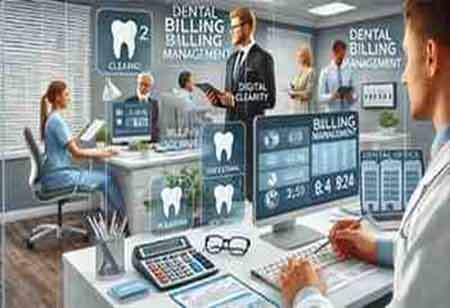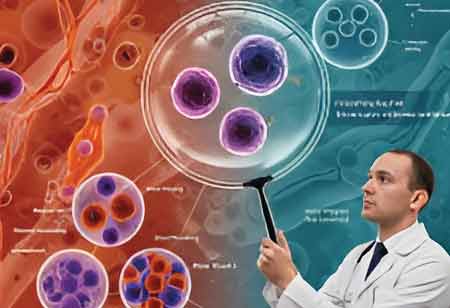Thank you for Subscribing to Healthcare Business Review Weekly Brief
Be first to read the latest tech news, Industry Leader's Insights, and CIO interviews of medium and large enterprises exclusively from Healthcare Business Review
Ensuring Access: The Critical Role of Non-Emergency Medical Transportation
Medical needs are unavoidable; emergency care is essential, and emergency care also requires equal importance.

By
Healthcare Business Review | Friday, March 07, 2025
Stay ahead of the industry with exclusive feature stories on the top companies, expert insights and the latest news delivered straight to your inbox. Subscribe today.
Medical needs are unavoidable; emergency care is essential, and emergency care also requires equal importance. Not everyone has access to transportation facilities; in these cases, they depend on family, friends or other acquaintances. But what if they are not available? Here comes the importance of Non-Emergency Medical Transportation (NEMT).
It's not just the vulnerable populations that can be affected. Someone who is usually healthy may be temporarily unable to get around due to an acute injury or surgery. Post-surgical patients cannot drive until their healthcare provider gives clearance, even if the surgery does not involve limbs or hands.
Surgery can weaken muscles needed for driving, and pain medication may make driving illegal and unsafe, necessitating alternative arrangements. Follow-up appointments are often crucial for recovery. For many, driving their car is not an option. NEMT provides the solution for these and other challenges.
Navigating Today's Terrain
The non-emergency medical transportation (NEMT) sector is experiencing significant growth and transformation. Increasingly, technology is being used to enhance service delivery. Companies rely on artificial intelligence and data analytics to optimize routes, improve scheduling, and ensure timely patient transportation. This technological integration is helping to reduce costs and increase efficiency.
Another trend is the growing demand for NEMT services due to an aging society and the rising criticality of chronic diseases. As more individuals require regular medical appointments and treatments, the need for reliable transportation continues escalating. This demand drives market expansion and encourages new players to enter the sector.
The focus on patient-centric care is also shaping the NEMT landscape. Providers are prioritizing patient comfort and safety, offering specialized vehicles and trained staff to cater to the unique needs of different patient groups. This approach enhances the general patient experience and ensures individuals get the care they need without transportation barriers.
Environmental sustainability is a priority in the NEMT sector. Companies are exploring eco-friendly transportation options like electric vehicles to reduce their carbon footprint. This shift towards eco-friendly practices is advantageous for the environment and aligns with the growing emphasis on corporate social responsibility.
In short, the NEMT sector is evolving rapidly, driven by technological advancements, increasing demand, patient-centric care, and a focus on sustainability. These trends are shaping the future of NEMT, making it more efficient, accessible, and environmentally friendly.
The non-emergency medical transportation (NEMT) sector faces several challenges that impact its operations and service delivery. One of the primary challenges is compliance with varying state regulations. Each state has its requirements and rules for NEMT services, making it difficult for providers to maintain consistent standards across different regions. Ensuring compliance with these regulations requires continuous monitoring and adjustments, which can be resource-intensive.
Late arrivals and no-shows are common issues in the NEMT sector. Patients often rely on timely transportation for their medical appointments, and delays can lead to missed treatments and dissatisfaction. Managing schedules and ensuring punctuality is challenging for NEMT providers, as is balancing multiple appointments and unforeseen delays.
System responsiveness is another critical challenge. While NEMT programs work well for regularly scheduled services, they often struggle with time-sensitive transportation needs. Providers may not always be able to respond quickly to urgent requests, leading to gaps in service and patient care.
Fraud and abuse are also concerns in the NEMT sector. Fraudulent billing and misuse of services can compromise the system's credibility and lead to financial losses. Implementing robust monitoring and verification processes is essential to address these issues and maintain trust in NEMT services.
Lastly, the shortage of qualified drivers poses a significant challenge. The demanding nature of the job, coupled with low wages, makes it challenging to attract and retain skilled drivers. This shortage can impact the quality and reliability of NEMT services as providers struggle to meet the growing demand for transportation.
The NEMT sector must navigate regulatory compliance, punctuality issues, system responsiveness, fraud prevention, and driver shortages to ensure effective and reliable service delivery. Addressing these challenges is essential for the industry's continued growth and success.
Future Horizons
The non-emergency medical transportation (NEMT) sector is set for significant growth and innovation. The aging population and rising prevalence of chronic diseases are driving the demand for NEMT services, ensuring patients can access healthcare conveniently and safely. Technological advancements are transforming the sector. Artificial intelligence and data analytics enhance route optimization and scheduling and reduce wait times. Telemedicine is also impacting NEMT by reducing the need for physical transportation.
Patient-centric care is driving the development of specialized transportation services, with vehicles equipped for wheelchair accessibility and trained staff. This helps patients receive the care they need without transportation barriers. Environmental sustainability is a priority, with companies exploring eco-friendly options like electric vehicles to reduce their carbon footprint. This aligns with the growing emphasis on corporate social responsibility.
The NEMT sector is poised for technological advancements, increasing demand, patient-centric care, and sustainability. These developments will enhance the efficiency, accessibility, and environmental impact of NEMT services, creating new opportunities for growth and improvement in the industry.






